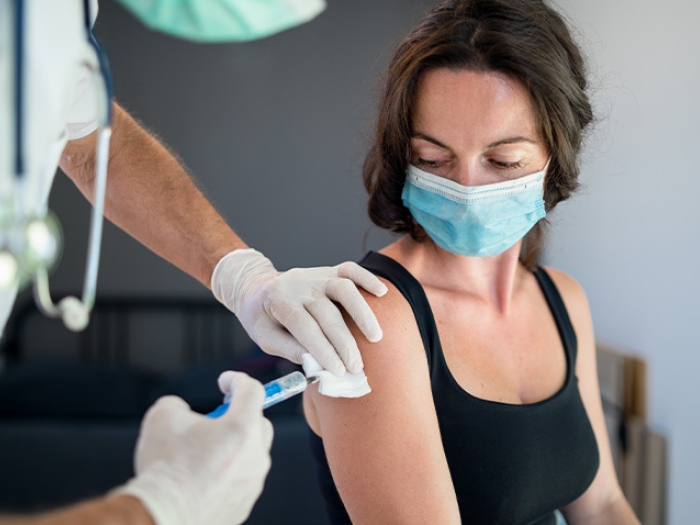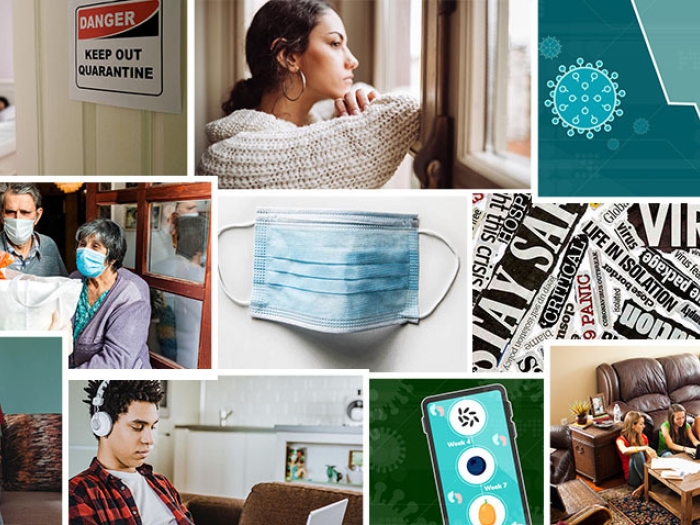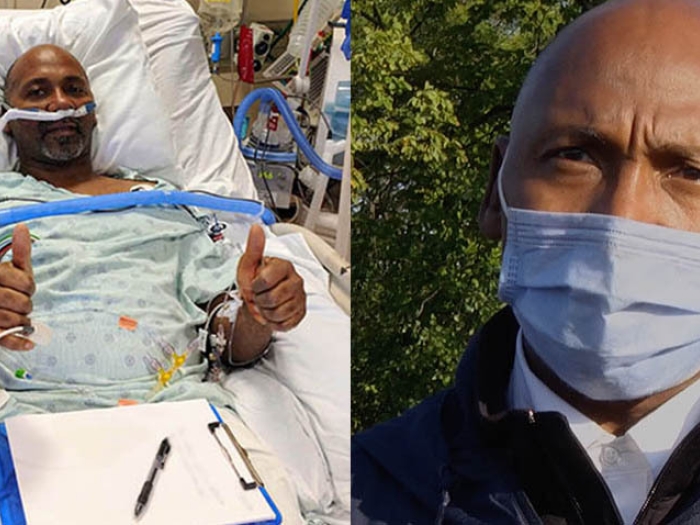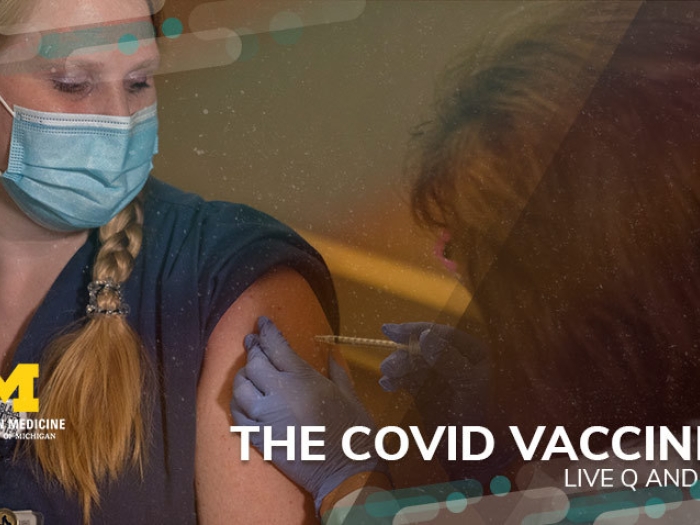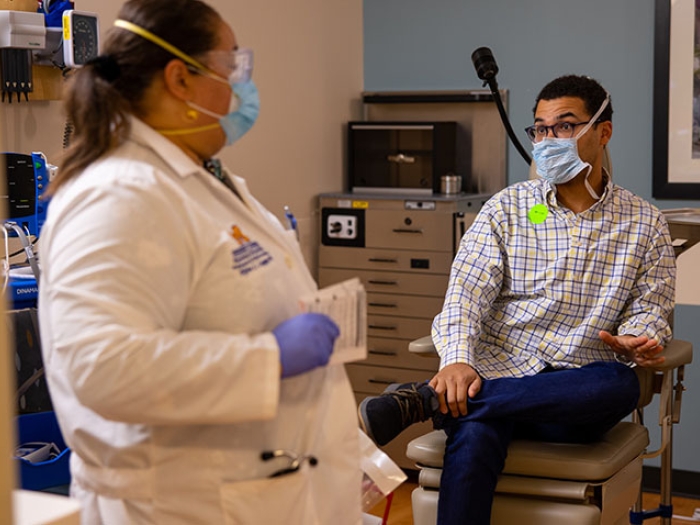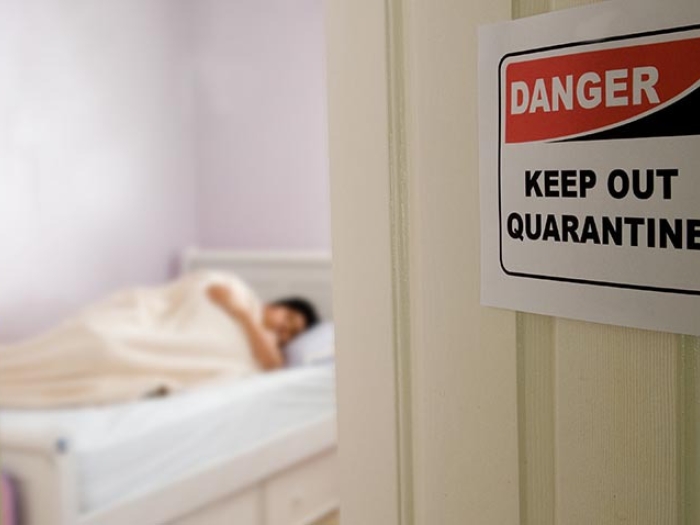Get to the truth of the matter with these scientifically-backed facts from an infection prevention specialist.
5:00 AM
Author |
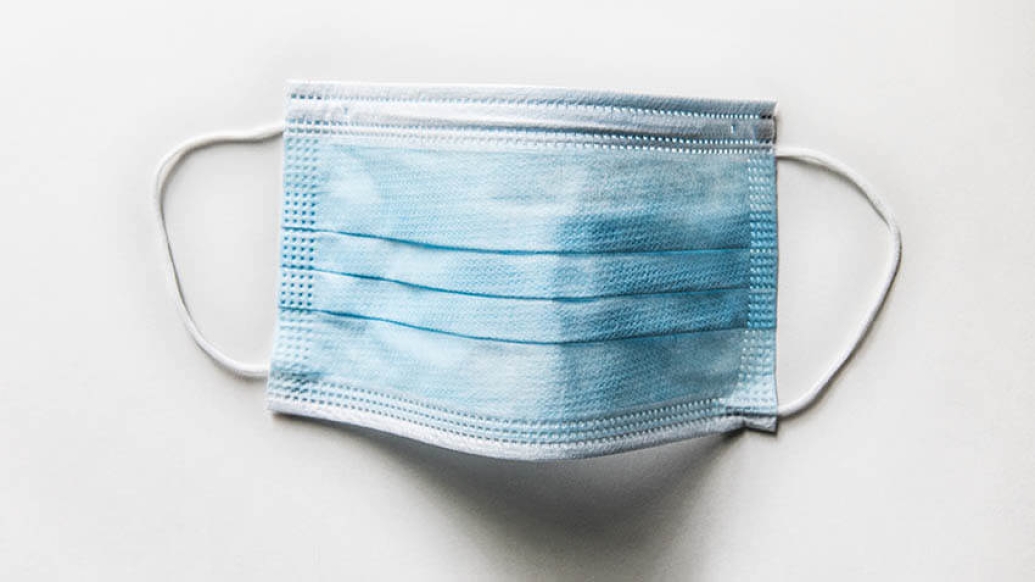
Editor's note: Information on the COVID-19 crisis is constantly changing. For the latest numbers and updates, keep checking the CDC's website. For the most up-to-date information from Michigan Medicine, visit the hospital's Coronavirus (COVID-19) webpage.
You've heard it time and again: One of the easiest and most effective ways to limit the spread of COVID-19 is by wearing face masks. That's true whether you're at the grocery store or seeing friends and family who live outside your immediate household.
So why have myths about masks still permeated society in the face of COVID-19? Amanda Valyko, M.P.H., the director of infection prevention and epidemiology at Michigan Medicine, says there may be a scientific element to the uncertainty.
"As we learn more about the virus and how it is spread, recommendations have changed," Valyko says. "That may have been the basis for distrust in what people are hearing from experts."
LISTEN UP: Add the new Michigan Medicine News Break to your Alexa-enabled device, or subscribe to our daily updates on iTunes, Google Play and Stitcher.
To help debunk any circulating face mask myths once and for all, Valyko weighs in with the scientific truth behind each.
1. Myth: The mask only protects others, not the wearer.
Truth: Masks actually protect both the wearer and others around them. The No. 1 goal of masks is to contain people's germs and prevent them from reaching others.
"A recent study found that if an individual is unmasked, their droplets can travel about eight feet," says Valyko. "But if you are wearing a mask, droplets travel less than one foot."
Valyko says there are also benefits to individuals wearing masks.
SEE ALSO: Seeking Medical Care During COVID-19
"A mask keeps your mouth and nose covered, which are two of the primary ways that infected droplets could enter your body," Valyko says.
In a health care setting, the benefits may be even more pronounced, as medical masks meet special filtration requirements, which offer added protection.
2. Myth: Masks with exhalation valves are more comfortable and offer the same amount of protection.
Truth: Masks with exhalation valves are not nearly as safe and do not limit the spread of COVID-19. Exhalation valves allow germs/droplets to be expelled into the air around you, putting others at risk.
MORE FROM MICHIGAN: Sign up for our weekly newsletter
"If a patient goes to an appointment with an exhalation valve mask, they should be asked to cover the valve with a regular mask or change into a regular mask," Valyko says. "There is very little protection offered by these types of masks."
3. Myth: Wearing a mask causes a dangerous build-up of carbon dioxide if worn for long periods of time.
Truth: There is no science supporting this. Wearing a mask is a safe practice.
"Health care workers have been wearing masks for prolonged periods of time – many, many hours for longer surgeries and things like that without incident," Valyko says.
That's because CO2 particles are extremely small, unlike viral loads, and can pass through masks. That's even the case for a higher protection mask like an N95.
"Studies on health care workers wearing tight-fitting N95 respirators have also not shown concerning increases in CO2 levels," Valyko says.
4. Myth: I'm wearing a mask, so I don't need to social distance.
Truth: Social distancing AND mask wearing is the most effective combination in limiting the spread of COVID-19.
As previously mentioned, wearing a mask limits droplet spread to about one foot. But that doesn't eliminate it altogether. Additionally, all of the scientific data and recommendations assume masks are being worn properly by everyone.
SEE ALSO: Keeping Our Patients Safe During COVID-19
"We often see people who are not wearing their mask correctly, such as covering their mouth but not their nose," Valyko says. "People will also often pull down their mask to talk, which is never a good idea. So keeping yourself masked and practicing social distancing offers the most protection."
If you do have to be closer than six feet, masks become even more critical. And vice versa, if you need to remove your mask to eat or drink, staying six feet apart is essential.
"Wear a mask, practice social distancing and wash your hands as often as possible," says Valyko. "These are key interventions that we can all perform in order to play our part during the pandemic."

Explore a variety of health care news & stories by visiting the Health Lab home page for more articles.

Department of Communication at Michigan Medicine
Want top health & research news weekly? Sign up for Health Lab’s newsletters today!
